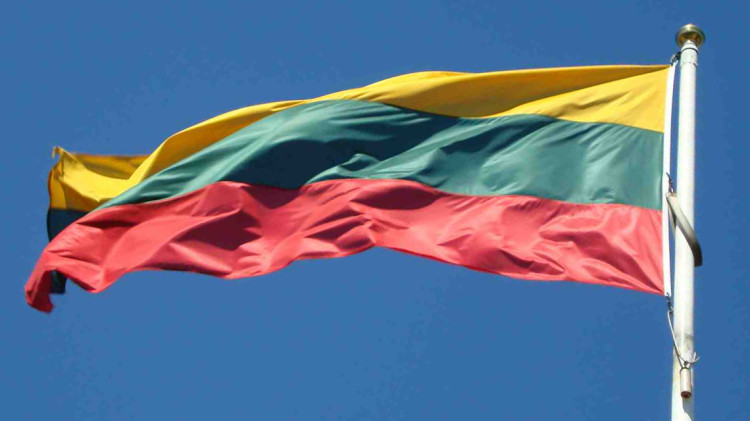An International Atomic Energy Agency (IAEA) mission said that Lithuania’s process to select a site for the country’s first deep geological repository (DGR) for spent nuclear fuel and long-lived radioactive waste is in line with international safety standards. The review identified specific areas for additional efforts including for the government to establish intermediate milestones and assign appropriate decision making responsibilities as it progresses with the site selection.
The Integrated Review Service for Radioactive Waste and Spent Fuel Management, Decommissioning and Remediation (ARTEMIS) review team concluded a ten day mission to Lithuania on 25 July to review the country’s siting selection process for the planned DGR. The review was carried out at the request of the Lithuanian government.
ARTEMIS reviews provide independent expert assessments using teams of international specialist peer reviewers convened by the IAEA. They can cover all aspects and topics related to managing radioactive waste and spent fuel, decommissioning and remediation. Reviews are based on the IAEA Safety Standards, technical guidance, and international good practices.
Lithuania’s radioactive waste and spent fuel comes from the past operation and current decommissioning of the Ignalina nuclear power plant (INPP) which stopped operating in 2009, as well as from waste generated from industry, medicine and research.
In its Development Programme for Decommissioning of Nuclear Power Facilities and Radioactive Waste Management for 2021–2030, Lithuania established that the only sustainable final method of disposal of spent nuclear fuel and other long-lived radioactive waste that can be considered at the moment is its placement in a DGR.
The ARTEMIS review evaluated the adequacy of Lithuania’s overall DGR site selection process, including timeframes, the studies prepared for each phase of site selection process, and an assessment of the outcomes of the DGR site selection process and the prioritization of potentially suitable sites for the DGR.
The ARTEMIS review team comprised six experts from Belgium, Canada, Finland, France, Germany, and Slovakia, and three IAEA staff members. The review team met with representatives of the INPP, the Ministry of Energy, the Lithuanian nuclear regulatory body VATESI, the Lithuanian Geological Survey, the Lithuanian Energy Institute, as well as the Spanish company IDOM and the Finnish Posiva Solutions Oy – two consulting companies for the DGR project.
The ARTEMIS team commended Lithuania for its early development and implementation of the DGR programme in particular by initiating a site selection process and actively planning for the next steps of the project. Lithuania is one of several countries developing and implementing a programme for the safe and long term disposal of radioactive waste and spent fuel in a deep geological repository. The ARTEMIS team recognized Lithuania’s request for a peer review at such an early stage of its site selection process as a good practice.
“By adequately considering the outcome of the present review, Lithuania will be in a good position to continue the safe development of the DGR project,” said ARTEMIS team leader, Jean-Michel Hoorelbeke, Former Senior Advisor Foresight and Strategy at the French National Agency for Radioactive Waste Management (ANDRA).
The team also identified recommendations and suggestions to improve the process for siting the DGR, including:
- For the Government to establish intermediate milestones until the final site selection and allocate responsibilities for decision making through this process.
- For INPP to develop a high-level document describing the overall site selection process
- For the Government, with the support of INPP, to establish a formal process for public engagement as early as possible.
- For VATESI to consider developing comprehensive guidance on geological disposal facilities in support of national requirements on siting process.
“We wanted to ensure that at this stage of the process, Lithuania is on right track and is ready to adopt the next steps of the process according to the recommendations we receive from the international experts,” said Dmitrij Ekaterinicev, Projects Management Department Director at the INPP.
The final report from the review will be provided to the Government of Lithuania in two months.
About ARTEMIS
ARTEMIS is an integrated expert review service for radioactive waste and spent fuel management, decommissioning and remediation programmes. This service is intended for facility operators and organizations responsible for radioactive waste management, as well as for regulators, national policymakers and other decision-makers.
The IAEA Safety Standards provide a robust framework of fundamental principles, requirements, and guidance to ensure safety. They reflect an international consensus and serve as a global reference for protecting people and the environment from the harmful effects of ionizing radiation. IAEA documents, such as Nuclear Energy Series publications, are also included in the review basis. They include practical examples to be used by owners and operators of utilities, implementing organizations, academia, and government officials in Member States, among others.


